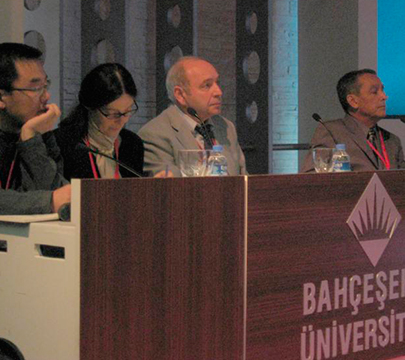
On May 20-21, 2010 Bahcesehir University, Istanbul hosted an International Policy Forum on Urban Growth and Conservation in Euro-Asian Corridor.
The organizers of the Istanbul Symposium were Architectural Institute of Japan (AIJ) and Istanbul Metropolitan Planning (IMP). The Architectural Institute of Japan launched a series of programs of international cooperation in this field of Conservation of Historical Cities in Eastern and Central Asia in 1999.
One of the major concerns of Istanbul Symposium was the growth management and environmental conservation within the new rising blocks, where rapid economic development is going on.
The collaboration of different countries and regions within Asia has been one of the main targets of the platform, which has initiated the idea of inter-regional environmental corridor.
The Eurasian corridor, which expands over vast continental areas from the Eastern Asia to Europe, has been known as connecting line of various civilizations between the East and the West, evoking a romantic idea about the history accumulated in these areas.
Georgia and its capital Tbilisi has always been an important branch of the Silk Road Great Rout. Consequently, Tbilisi ranks among historic cities with specific urban fabric and strong identity.
Partnership among the cities and institutions which participate in the platform and exchange ideas between experts and specialists was one of the targets of the Istanbul Symposium.
At the Istanbul Symposium Tbilisi urban and architectural heritage was represented by Maia Mania, architectural historian of the Tbilisi State Academy of Arts and Giorgi Chubinashvili National Research Center for Georgian Art History and Monuments Preservation, who presented a paper entitled Tbilisi – Meeting Place of Traditions.
